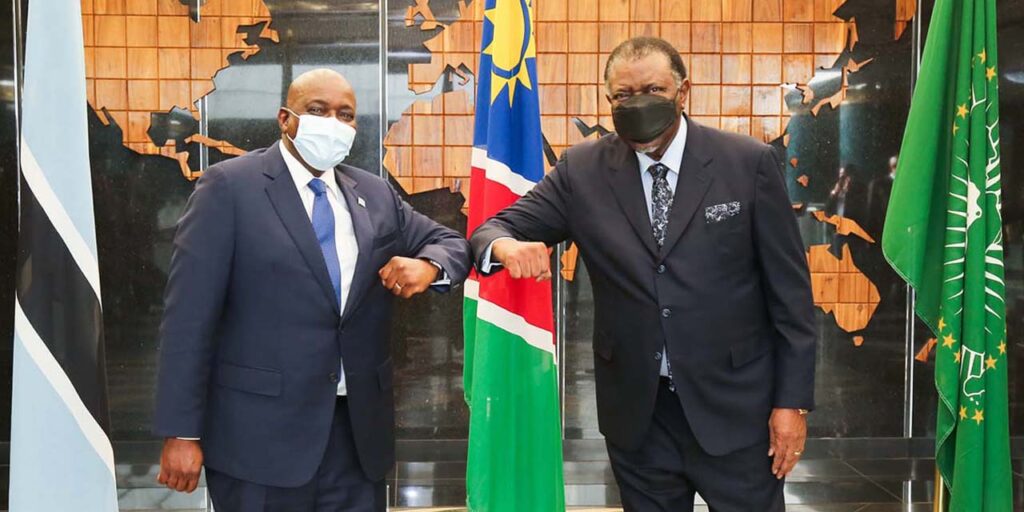The leaders of Botswana and Namibia have signed an agreement that will allow their citizens to cross the two countries’ border without passports. Starting immediately, citizens of the two southern African countries will only be required to produce their identity cards at crossing points.
Read More: Hosts China and Russia For Joint Maritime Exercises
Botswana’s president, Mokgweetsi Masisi, and his Namibian counterpart, Hage Geingob, launched the passport-free travel arrangement at the Mamuno border crossing. Masisi said introducing the use of identity documents for travel is necessary to foster unity between the two neighbors and other southern African states.
Namibian President Geingob says the move is a key step toward integration among countries of the Southern African Development Conference, SADC, and ultimately the entire continent.
Namibia and Botswana, two of Africa’s most politically stable countries, share a 1,500-kilometer-long border with five official crossing points. Geingob said abolishing the use of passports will not open doors to criminal elements to cross borders without detection
Read More: Burkina Faso: Africa’s Largest Film Festival Endures
Botswana’s minister of Home Affairs, Annah Mokgethi, was part of the working group that, starting in 2019, explored the possibility of ending the use of passports between the two countries. Botswana and Namibia become the first countries in Southern Africa to abolish the use of passports to travel between them.
